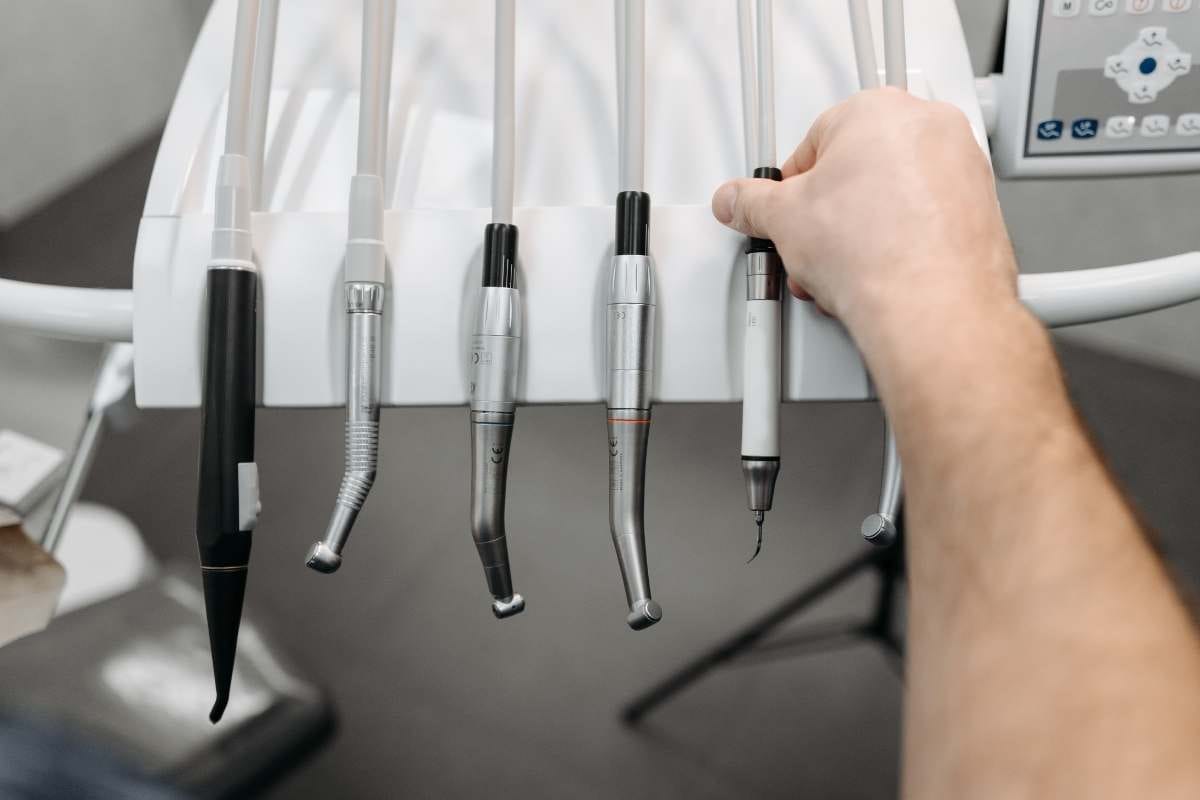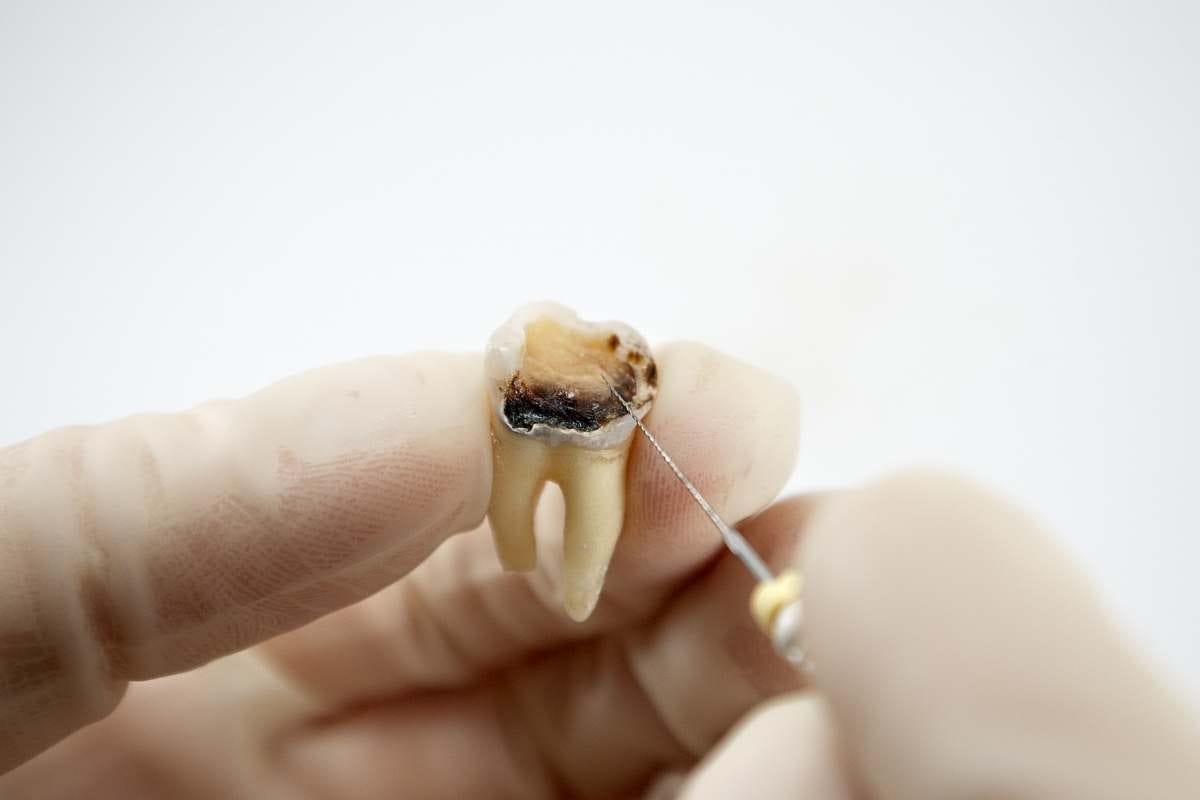Endodontics (Root Canal Treatment)
Endodontics plays a vital role in maintaining and improving dental health. This branch of dentistry focuses on the internal structure of the tooth, particularly the pulp tissue, which contains nerves and blood vessels. For individuals who value their oral health, understanding what endodontics is and what it treats is essential.
Endodontic treatments, especially root canal therapy, aim to preserve the natural tooth structure and eliminate painful dental problems caused by infection or inflammation of the pulp. By addressing these issues early, endodontics helps prevent tooth loss and contributes significantly to long-term oral health.
What is Endodontics?
Endodontics is the branch of dentistry that focuses on the pulp tissue, the nerves, blood vessels and connective tissue inside the tooth. Endodontic treatment, particularly root canal therapy, helps preserve the tooth’s internal structure. By removing infected or damaged pulp tissue, the natural tooth can be saved and maintained in the mouth, supporting both oral health and function.
Endodontics plays a crucial role in dental health, as untreated dental infections can lead to severe pain, abscess formation and eventual tooth loss. By treating these conditions early, endodontics helps preserve natural teeth and ensures long-term oral health. For individuals committed to maintaining their dental well-being, understanding what endodontics is becomes essential. With timely diagnosis and treatment, tooth loss can often be prevented, making endodontic care a key component of preventive dentistry.
Since 1999, ATA PERA Dental Center has been a trusted name in the field of dental implants.
What Does Endodontics Do?
Endodontics is a specialized dental treatment aimed at preserving the internal structure of the tooth and keeping it healthy. It focuses on cleaning and protecting tooth tissue that has been damaged by decay, trauma, or infection. Through precise techniques, the root canals are thoroughly cleaned and sealed, preventing further infection and saving the natural tooth.
As one of the most effective solutions for painful dental conditions, endodontics plays a key role in long-term oral health by extending the life of natural teeth. If left untreated, infected teeth can lead to serious health issues. Endodontic treatment not only relieves pain and prevents tooth loss but also helps maintain both the aesthetic and functional aspects of a healthy smile.

Which Conditions Does Endodontics (Root Canal Treatment) Address?
Endodontics focuses on diagnosing and treating diseases that affect the internal structure of the tooth—particularly the dental pulp and root canals. With early diagnosis and proper treatment, many of these conditions can be managed effectively, preventing tooth loss and preserving oral health. The main conditions treated in endodontics include:
- Pulpal Diseases: Inflammation or damage to the pulp tissue inside the tooth can lead to pain, sensitivity and infection.
- Root Canal Infections: Bacterial infections within the root canals can progress over time and if left untreated, may result in tooth loss or systemic health complications.
- Dental Abscesses and Inflammation: Abscesses that form at the root of a tooth or in surrounding tissues can cause intense pain and the spread of infection to nearby structures.
- Tooth Trauma and Fractures: Damage due to accidents or impacts such as cracks, breaks or dislodged teeth, can often be treated with endodontic procedures to save the tooth.
- Internal Resorption and Root Damage: This condition involves the gradual breakdown of tooth structure from the inside, weakening the tooth and potentially leading to loss if not treated.
What are Endodontic Treatment Methods?
Endodontics offers various treatment methods to address problems within the internal structure of the tooth, aiming to keep the tooth healthy and functional. These treatments focus on the root canals and pulp tissue by removing infections and preserving tooth vitality. The main endodontic treatment methods include:
Root Canal Treatment (Endodontic Treatment): This procedure cleans infections inside the root canals. Damaged pulp tissue is removed, the canals are disinfected and then filled with a special material. Root canal treatment saves the tooth from extraction and extends its natural lifespan.
Revision Root Canal Treatment (Retreatment): If the initial root canal treatment fails or a new infection develops, this procedure reopens the canals, removes old filling materials, cleans the infected tissue and refills the canals to restore tooth health and function.
Apical Resection (Root Tip Surgery): When an infection persists at the tip of the root despite previous root canal treatment, this surgical method removes the infected tissue at the root tip to preserve the tooth. It is used to treat chronic infections unresponsive to conventional root canal therapy.
Vital Pulp Treatments: These procedures aim to protect the pulp tissue without fully removing it. Often applied in young patients or in cases diagnosed early, this method involves partially cleaning the pulp and covering it with special protective materials to preserve the tooth’s natural structure.
Endodontic Treatments for Dental Trauma: Applied when a tooth is fractured or its root structure is damaged due to impact, these treatments protect and restore traumatized teeth, helping them maintain function. Particularly in young patients, preserving the nerve structure is crucial for long-term dental health.
Endodontic treatments, including root canal therapy, play a vital role in maintaining oral health by preserving the natural tooth structure and preventing tooth loss. These methods enable patients to retain healthy teeth and a strong oral framework.

What Does Endodontics Do?
- Endodontics encompasses treatment methods focused on preserving the internal structure of the tooth and supporting overall dental health. It involves cleaning infected or damaged internal tissues, sterilizing the root canals and filling them with specialized materials to maintain tooth functionality.
Beyond relieving pain, endodontic treatments such as root canal therapy, retreatment and root tip surgery, play a crucial role in preventing tooth loss. Thanks to modern endodontic techniques, the natural tooth structure can be preserved, allowing patients to maintain a healthy and functional oral system. With accurate diagnosis and appropriate treatment, teeth can continue to perform their essential functions for many years.
How Does the Endodontic Treatment Process Work?
The endodontic treatment process involves several carefully planned steps to ensure the healthy preservation of the tooth. At Ata Pera Dental Clinic, we carry out each stage meticulously to provide the best possible treatment experience for our patients.
Initial Examination and Diagnosis
The endodontic treatment process involves several carefully planned steps to ensure the healthy preservation of the tooth. At Ata Pera Dental Clinic, we carry out each stage meticulously to provide the best possible treatment experience for our patients.
Imaging Techniques (X-ray, CBCT Scan etc.)
To ensure an accurate diagnosis, advanced imaging techniques such as digital X-rays and CBCT (Cone Beam Computed Tomography) scans are used. These technologies allow for a detailed examination of the tooth’s root structure and help identify the extent of internal damage or infection with precision. At Ata Pera Dental Clinic, we utilize state-of-the-art imaging systems to ensure accurate diagnosis and effective treatment planning.
Treatment Stages and Methods Used
The treatment process may vary depending on the condition of the tooth. First, the infected or damaged pulp tissue is removed and the root canals are thoroughly cleaned and sterilized using special disinfecting solutions. After sterilization, the canals are filled with biocompatible materials to prevent future infections and restore the tooth’s integrity. Thanks to the advanced techniques and technologies used at Ata Pera Dental Clinic, this process is performed in a painless and comfortable manner.
Aftercare Process
Following treatment, there are a few important points for patients to consider during the healing period. Mild sensitivity is normal in the first few days and typically subsides quickly. Maintaining proper oral hygiene, as advised by your dentist and attending regular dental check-ups are essential for long-term success. At Ata Pera Dental Clinic, we provide our patients with detailed post-treatment guidance to ensure lasting results and optimal oral health.
In which cases is endodontic treatment necessary?
Endodontic treatment is required in specific cases to protect the health of the tooth and ensure its continued function. At Ata Pera Dental Clinic, we provide the most appropriate treatment methods to help prevent tooth loss and maintain a healthy oral structure.
Deep Tooth Decay: While minor cavities can be treated with fillings, deeper decay can reach and damage the pulp tissue inside the tooth. When the pulp becomes infected or inflamed, root canal treatment becomes necessary to eliminate the infection and preserve the tooth. The infected tissue is carefully removed, allowing the tooth to remain functional and pain-free.
Trauma or Injury to the Tooth: Physical trauma such as a blow to the mouth or a fractured tooth, can harm the tooth’s nerve tissue. In these cases, endodontic treatment is essential to prevent infection and save the tooth. Especially in situations involving cracks or breaks, early intervention can preserve the tooth’s structure and vitality.
Loss of Tooth Vitality and Pain: When a tooth’s blood supply is disrupted due to infection, trauma or advanced decay, it may lose its vitality over time. This often leads to severe, persistent pain and can significantly impact a person’s daily comfort and quality of life. Through endodontic treatment, the infected or necrotic tissue inside the tooth is removed, the root canals are thoroughly cleaned and sealed and the natural tooth is preserved. This procedure restores function and eliminates the need for extraction.
Endodontic treatment plays a vital role in preserving the natural structure of the tooth and supporting long-term oral health. With early diagnosis and the right treatment approach, tooth loss can often be prevented, allowing patients to maintain a healthy and functional smile for years to come.

Is Endodontic Treatment Painful?
- Thanks to modern technology and advanced anesthesia techniques, endodontic treatment today is virtually painless. Local anesthesia is applied before the procedure, ensuring that patients remain completely comfortable and feel no pain during treatment. At Ata Pera Dental Clinic, patient comfort is our top priority and we strive to make every stage of the treatment process as smooth and stress-free as possible.
After the procedure, some mild sensitivity or temporary discomfort may occur, but this typically resolves within a few days. Any discomfort can easily be managed with over-the-counter painkillers recommended by your dentist. Since endodontic treatment plays a key role in preserving natural teeth and maintaining long-term oral health, patients are encouraged to undergo the procedure without fear or hesitation.
What Should Be Considered After Endodontic Treatment?
- After endodontic treatment, it’s important to avoid applying excessive pressure on the treated tooth for the first 24 hours. Refrain from consuming hot or extremely cold foods and take any prescribed painkillers as directed by your dentist. Additionally, avoid chewing on the treated side to allow the tooth time to begin healing. In the days following treatment, avoid hard or sticky foods that may stress the tooth. Opt for soft, easy-to-chew meals to support a smoother healing process. Maintaining good oral hygiene is essential, continue brushing and flossing as recommended, while being gentle around the treated area. Regular follow-up appointments are crucial to ensure the long-term success of your endodontic treatment. At Ata Pera Dental Clinic, we carefully monitor each patient’s healing process and provide ongoing support to maintain their oral health.

What Does Endodontics Focus On?
Endodontics, commonly known as root canal treatment, focuses on the diagnosis and treatment of issues affecting the internal structures of the tooth, specifically the pulp tissue, which contains nerves, blood vessels and connective tissue. Endodontic specialists evaluate and treat conditions such as infections, inflammation and trauma that impact the root canals and pulp. When problems arise due to deep tooth decay, fractures or root damage, endodontic treatment is performed to preserve the natural tooth and prevent the need for extraction. The primary goal is to maintain the tooth’s function and support long-term oral health.
What Is the Endodontics Department?
Endodontics is a specialized branch of dentistry focused on diagnosing and treating diseases related to the internal structure of the tooth. This includes infections in the root canals, damage to the nerve tissue (pulp) and inflammation at the root tip. The main goal of endodontic treatment is to save the natural tooth and maintain its function. With the help of modern endodontic techniques and technologies, it is often possible to treat these issues effectively, allowing the tooth to remain healthy in the mouth for many years without the need for extraction.
Does Endodontics Perform Fillings?
Endodontic specialists focus on cleaning and treating the root canals of a tooth during root canal treatment. After removing the infected or damaged tissue, they fill the canals with special biocompatible materials to seal and protect the internal structure of the tooth. However, traditional surface fillings, used to restore the outer part of the tooth, are typically performed by restorative or general dentists. In many cases, a crown or additional filling may be needed to fully restore the tooth after endodontic treatment. This final step is usually completed by a general or prosthetic dentist to ensure long-term strength and function.

